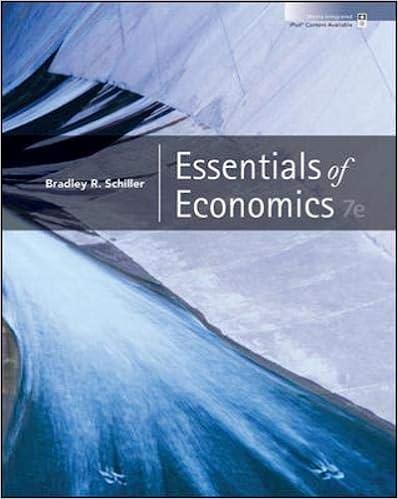
1. Suppose you decided to take a plane trip to Las Vegas over the upcoming weekend. Please describe how you would calculate the opportunity cost of this trip. 2. What is the recent trend in employee compensation as a share of national income over the past 25 years? How do you explain this trend? Does this tell us anything about how the distribution of income has become less equal over this period? Explain. 3. Suppose a business has already spent $10 million on research and investment for a new innovation when they find out that market conditions have changed so that they will be unable to recapture their full investment. If an opportunity arises that will cost them another $5 million, but which will generate an additional $8 million of revenue, what should the firm do? Should they pursue this new opportunity? Explain. What is the economic term for the original $10 million? 4. Pollution is an example of what type of market failure? Why do markets have such a hard time dealing with this type of market failure? Without some form of government intervention, do you expect the market quantity exchanged will be efficient when this type of market failure arises? Why or why not? 5. The US has the potential to lead the world in producing clothing, yet we choose instead to produce items like high-tech equipment, precision instruments, advanced medical devices, and agricultural goods instead of specializing in clothing production. How do you explain this in economic terms? 6. Suppose that the price of widgets is $10 and quantity exchanged is 100 units. Now suppose that something occurs in the widget market that drives the equilibrium quantity of widgets down to 80 units, but leaves prices unchanged at $10. How can you describe how this might have occurred? That is, what would have happened in the widget market to cause this to occur? 7. Suppose there was a city that was experiencing labor market equilibrium with entry level wages that averaged $15 per hour. Suppose now that the city council decided to impose a minimum wage of $25 per hour for all workers. What kind of a price restriction is this called? What do you expect will happen in the market for entry level workers? Please explain. 8. What has happened to per capita real GDP in the US over the past 150 years? What does this say about material living standards? Please cite a couple of examples of how indicators of social progress have improved over this time period








